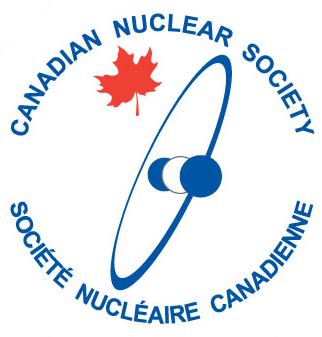NUTHOS-14: Special Sessions Announcement

Announcing Five Special Sessions at NUTHOS-14!
Get ready for an unforgettable journey into the world of nuclear innovation at NUTHOS-14! We’re thrilled to announce the lineup of five special sessions, held during the conference in Vancouver, Canada, from August 25 to 28, 2024. These sessions are curated to provide the most value to your conference experience, and feature cutting-edge topics and esteemed speakers from the global nuclear industry.
From advancements in scientific machine learning for nuclear thermal-hydraulics to cutting-edge insights on advanced reactor technologies, each session promises to examine the roles of innovation in nuclear thermal-hydraulics, operations and safety.
Please continue reading below for detailed descriptions, session chair and panelist information for these exciting sessions!
1) Scientific Machine Learning for Nuclear Thermal-Hydraulics: Progresses, Challenges, and Opportunities
Scientific Machine Learning (SciML) is a burgeoning discipline in Artificial Intelligence (AI) and Machine Learning (ML) that blends scientific computing and ML. SciML brings together the complementary perspectives of computational science to craft a new generation of ML methods for complex applications across science and engineering. In the past few years, nuclear Thermal-Hydraulic (TH) study has advanced with the support of SciML in many aspects.
In this panel session, speakers from universities, national labs and the nuclear industry will share their experience and perspectives on SciML for nuclear TH study, including recent progress, existing challenges, and future opportunities.
Session Chairs:
- Professor Xu Wu, North Carolina State University, USA
- Professor Yang Liu, Texas A&M University, USA
Speakers:
- Professor Yang Liu, Texas A&M University, USA
- Professor David Novog, McMaster University, Canada
- Dr. Jean-Marie Le Corre, Westinghouse Electric, Sweden
2) Thermal-Hydraulic Challenges and Opportunities for the Operating Fleet
Operating fleet capacity factor and reliability have improved significantly over the last few decades. However, to keep up with changing economic pressures and with the desire to further improve plant safety and operation, we have been looking into new innovative solutions to further improve fleet’s economics as well as overall safety of the plants. Operational experience gained in recent decades and improvements in computational infrastructure are major keystones of this effort. That said, these opportunities and initiatives present several significant challenges.
Experts from light water reactor and heavy water reactor industry will discuss these challenges as well as the new opportunities identified while addressing these challenges via application of innovative solutions, such as for the fuel fragmentation relocation and dispersion (FFRD) and time at temperature (t@T) concepts.
Session Chairs:
- Baris Sarikaya, Constellation Energy, USA
- Zesus Karoutas, Westinghouse, USA
Speakers: Opening keynotes from utilities followed by a panel with vendors and research organizations.
3) Micro-Reactor Session
This special technical session brings together individuals from across the industry and community to highlight some of the initiatives that are ongoing and needed to support deployment of micro reactors in Canada and elsewhere.
The speakers include community members from First Nations, nuclear regulators, and experts from national laboratories. They will provide their perspectives on key challenges and collaborative actions contributing to the solutions needed to accelerate deployment and unlock the potential of microreactors to contribute to achieving net-zero transition.
Session Chairs:
- Piyush Sabharwall, INL, USA
- Krishna Podila, CNL, Canada
Speakers: Speaker perspectives will include Indigenous communities, sitting organizations, regulators and national laboratories supporting deployment. Speakers will be announced shortly.
4) Thermal-Hydraulics, Operation and Safety Opportunities and Challenges for Short-Term Deployment SMR
This session aims to discuss the opportunities and challenges related to the short-term deployment of Small Modular Reactors (SMRs). The discussion will focus on both common and specific design considerations within the safety demonstration process, including advanced safety features like boron-free operation and the integration of passive safety systems.
Contributions from panelists will greatly benefit attendees who are looking to understand the opportunities and challenges associated with SMR development and implementation.
Session Chairs:
- Fulvio Mascari, ENEA, Italy
- Bao Wen Yang, Delta Energy, USA
Speakers: Panelists will include academia/research organizations, regulators, utilities, and vendors. Speakers will be announced shortly.
5) Advanced Reactors: Development, Licensing, and Deployment
Advanced reactor technologies hold significant promise in addressing both the growing demand for clean energy and the need to mitigate climate change. Bringing together experts from various regions in the world and reactor types (high-temperature gas-cooled, molten salt, liquid metal-cooled) can offer a comprehensive view of the current state of development, regulatory considerations, and deployment strategies.
The panelists will touch upon a range of topics, including reactor technology advances, licensing challenges and progress, deployment strategies, and international collaboration. Overall, this session promises to offer insights into the current state and future prospects of advanced reactor development and deployment, with a focus on addressing key challenges and accelerating progress towards clean energy goals.
Session Chair:
- Professor Xiaodong Sun, University of Michigan, USA
Speakers:
- Dr. Ferry Roelofs, NRG, Netherlands
- Dr. Sangji Kim, KAERI, Korea
